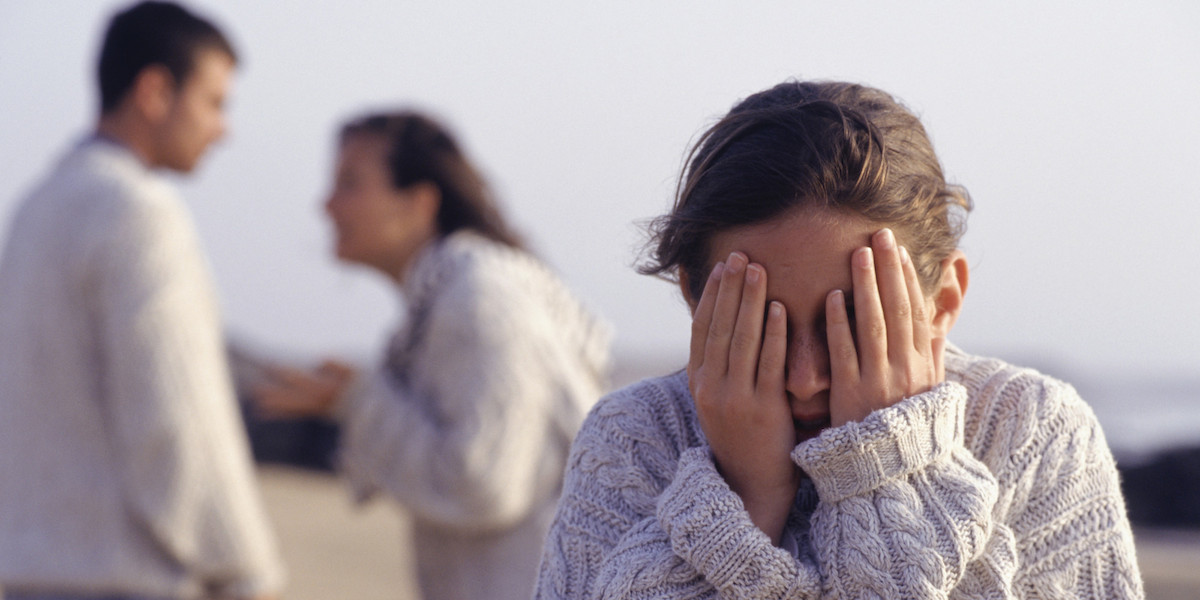
Sexual abuse is a serious problem, both in North America and all around the world. In the United States, one out of three young women will be sexually abused before they become an adult. Shockingly, one recent study found that one in five females are sexually assaulted in their first year of college.(1) Most of these are date or acquaintance rapes, and nearly all involve the consumption of alcohol. One out of five to six boys are sexually abused before adulthood. Every day in this country, children are being tricked, seduced, intimidated, and forced into sexual activity with another person.
WHAT PARENTS CAN DO TO PREVENT TEEN SEXUAL ABUSE
- Learn as much information as possible about physical and sexual abuse. Learn who is most likely to commit crimes of abuse and why adults abuse kids. If you have any concerns, discuss them with your loved ones. There are many websites that have preventative information about sexual abuse. A simple search will turn up many of these resources.(2)
Listen to and talk with your teens. Good communication is the most important principle in keeping teens safe from sexual abuse. Work to create a climate in your home in which your teen is able to share about things they may be afraid or embarrassed about. Share what you know about sexual abuse and how to prevent it. For instance, be sure your teen knows basic information like, “No one has the right to touch your body without your permission.”
- Teach your teen personal safety rules and general information on sexual abuse. It’s even better if you start when your children are younger (in an age-appropriate way) and set clear safety rules for them. Here is a list of safety rules to help you get started:
- If you haven’t done so yet, teach your kids the proper names for all their private parts; many children are not able to tell about sexual abuse because they don’t know the words to use. (This discussion can be done in combination with your ongoing conversations with your kids about sexuality.)
- Safety rules apply to all adults, not just strangers. (80 percent of sexual abuse is committed by someone known and trusted.)
- No one has the right to touch anyone’s body without permission, regardless of how much the other person says they love them, how much money the person has spent on them, or any other reason.
- Anytime physical touch makes your child uncomfortable, she has the right to say no. No one ever owes another person the right to touch them. Teach your child to trust her gut feelings. Pushing, manipulating, pressuring, exploiting, or abusing another person is never acceptable in any relationship. Your children’s bodies belong to them. It is not okay for another person to touch their private parts.
- It’s okay to say no if someone tries to touch their body or do things that make them feel uncomfortable, no matter who the person is. The same goes for showing (or taking) photos or videos.
- If an adult or teenager has abused them in the past, it is not their fault. It is always the offender’s responsibility.
- Your child should not keep secrets about inappropriate touching, no matter what the offender says; if someone touches them without permission, tell and keep telling until someone listens!
- Know the adults in your teen’s life. Get to know your child’s teachers, coaches, youth workers, and so on. You should know as much as you can about the adults your child spends time with. If you have a cautionary feeling, don’t let it pass. Follow through on your gut feelings.
- Keep tabs on your kids. As much as possible, know where your kids are and who they are with. Make it a family rule that if your child’s plans change, they must notify you before they do something or go somewhere you don’t know about.
WHAT PARENTS CAN DO TO HELP A TEEN WHO HAS BEEN SEXUALLY ABUSED
Victims of sexual abuse live in a world clouded by the fact that something very horrible has happened to them. They’re devastated when it happens, but are often quite grateful to have someone to talk to about it. That’s why, if your son or daughter needs to talk, you can encourage them with these facts:
- The abuse was not their fault. It is always the fault of the abuser. Far too many young people blame themselves for their victimization. Remove all fault from your teen. Remember this is not the time to lecture her or him.
- It is good to talk out your feelings right now. It’s not healthy to suffer in silence. The natural tendency is to not tell anyone. The shame is so strong it often keeps kids from talking. But suffering in silence will never help them heal. The pain will continue to manifest itself in multiple ways in the young person’s life. It’s not easy to talk about the experience, but it is the road to recovery and help.
- There is hope and healing available. After experiencing this kind of trauma, many young people lose hope—yet hope is what they need to move forward. I tell kids there are millions of people who have experienced what they have experienced, and those who are willing to seek help receive the healing they need. If you can find someone who has had a similar experience and found hope and healing through seeking help, this can help your teen in a big way.
- Get counseling for sexual abuse now, in order to prevent problems as they grow older. If they have never talked with a counselor, seek help immediately. This is not something a parent can handle on their own.
- God cares. He really does! Sexual abuse, as much as any trauma, brings about strong feelings of anger and questioning God. Let your child know that if Jesus wept at the death of a friend, then he weeps for their pain, too. He doesn’t promise to take away all our sorrow, but he does promise to walk with us through our darkest moments.
Sometimes, just hearing these assurances from the person they trust most can be the starting point of recovery for a child who has been sexually abused.

 Eliminating Sexual Violence Could Reduce Poor Mental Health Among Teens
Eliminating Sexual Violence Could Reduce Poor Mental Health Among Teens  Study Reveals the Lasting Effects Childhood Trauma Has on Adult Relationships
Study Reveals the Lasting Effects Childhood Trauma Has on Adult Relationships  Children Exposed to Intimate Partner Violence Twice as Likely to Have Poorer Health
Children Exposed to Intimate Partner Violence Twice as Likely to Have Poorer Health